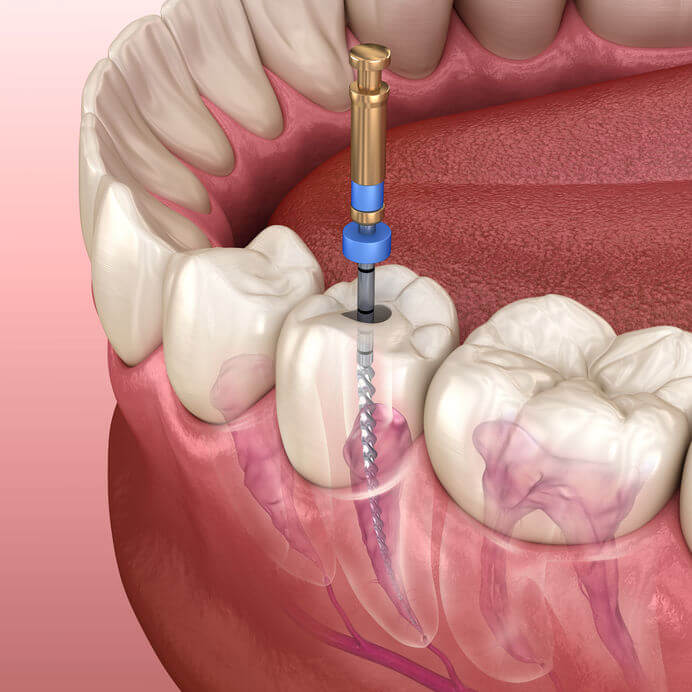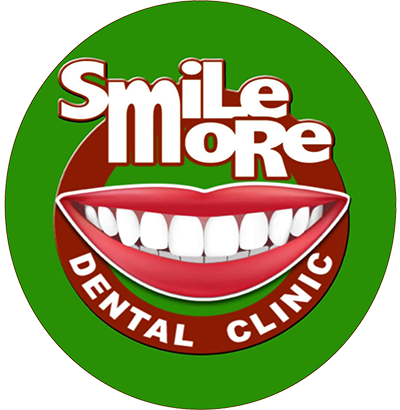Regarding the Root Canal (Endodontic) Treatment, many misunderstandings and questions about possible associated pain exist. Your dentist and endodontist are meant to provide reliable information and help you understand all your options. They can answer many of your questions, but seeking a second opinion may be good if you still have doubts or worries. Having accurate details is the best way to make informed decisions when considering any medical or dental procedure.
MYTH #1— Root Canal Treatment Hurts Terribly – FALSE!
The truth is that root canal treatment doesn’t cause pain; it actually relieves it.
Recent studies have illustrated that root canal treatment is no more painful than a dental filling due to advances in technology and anesthesia. Patients who have had root canals are six times more likely to say it is “painless” than those who haven’t had one yet. The negative perception of the procedure began many years ago, but with modern innovations, this is no longer an issue.
Severe tooth pain is a common symptom of damaged nerve tissue in the tooth and often requires root canal therapy from a professional dentist or endodontist. By removing the damaged and inflamed tissue, this treatment helps alleviate discomfort and restore oral health.
MYTH #2—Root Canal Treatment Causes Disease or Illness – FALSE!
Dental research from the past century has overwhelmingly demonstrated no scientific evidence linking root canal (endodontic) treatment to illness and disease outside the mouth. Dr. Weston A. Price‘s research from nearly 100 years ago, debunked and poorly designed, is the source of any claim asserting otherwise. The facts do not support that any health risks exist beyond what would be associated with any other dental procedure.
In the 1920s, Dr. Price supported tooth extraction over endodontic treatment, a procedure considered especially traumatic then. This stance led to a lot of healthy teeth being needlessly removed, both as a treatment for existing conditions and as preventative measures against future illness.
It is well established that bacteria are consistently present in teeth and the oral cavity. However, this doesn’t necessarily mean a person is infected – the presence of bacteria can be harmless. Furthermore, research indicates that a healthy immune system eliminates potential threats caused by bacterial activity within minutes. Therefore, it’s important to maintain balanced microbiomes in our mouths for the safety of our collective health.
Saving a natural tooth with root canal therapy and appropriate restoration is usually less expensive than extraction. Why? Because endodontic treatment (root canal) can help preserve your natural teeth for a lifetime. Avoiding the more costly options like Fixed Bridges or Dental Implants.
Tooth extraction carries the risk of increased bacteria entering the bloodstream, while endodontic treatment is confined to the root canal system and produces much lower levels of bacterial invasion. Furthermore, there is no adequate replacement for the natural tooth, so it should be saved whenever possible. Therefore, endodontic treatment may be a preferable option to maintain dental health.
While Dr. Price was an influential researcher, newer research has since invalidated his theories regarding dental health. His studies, published in the early 20th century, have yet to be able to withstand the test of time, and criticism of their methods is expected. As such, the baseless claims about root canals found on the Internet are still rooted in his century-old research. In 1951, the Journal of the American Dental Association (JADA) published a special edition to review the scientific literature and changed the standards of practice in cases where teeth with non-vital pulp could still be saved. This marked an extraordinary step forward in modern dentistry. The JADA carefully examined Dr. Price’s research techniques from the 1920s. It concluded they needed to be more adequate compared to current scientific practices, as control groups were absent and there was excessive integration of bacteria.
Recent research published in JAMA Otolaryngology—Head & Neck Surgery from 2013 discovered that individuals who undergo multiple endodontic treatments have a decreased cancer risk of 45 percent. This could be an essential factor for healthcare professionals to consider when making decisions about patient care.

MYTH #3—An Economical and Suitable Alternative To Root Canal is Extraction (Pulling the Tooth) – FALSE!
The best option is to save your natural teeth.
If you’re faced with an extraction, it’s essential to consider all potential options. Even though a prosthetic device may be necessary, nothing can replicate the functions of your natural tooth. Additionally, if certain foods are avoided because of a denture or implant, it can interfere with receiving proper nutrients for your body. Root canal treatment is often suggested when the extraction isn’t necessary. Talk to your dentist about this before making any decisions.
Endodontic treatment is a practical, cost-efficient way to treat teeth with damaged pulp. This treatment is often more inexpensive than extraction and replacing teeth with a bridge or implant. When combined with the proper restoration, endodontic treatment can save patients money while preserving the natural progression of their smile.
Endodontic treatment typically has a very high rate of success. Many of the teeth that have gone through root canal therapy can last for many years to come. It will take much longer to perform a dental bridge or implant procedure and may result in additional treatments on the adjacent teeth and neighboring tissue.
Endodontic treatment can be highly beneficial, providing patients with healthy teeth for years to come. Millions of people around the globe are taking advantage of this effective procedure. Endodontic treatment helps patients to enjoy a regular diet, sustain the appearance of their smiles, and lead happy, fulfilling lives.
Endodontic treatment is a procedure that specializes in saving natural teeth. Endodontists and dentists use this method to keep your natural teeth healthy and strong throughout life.


